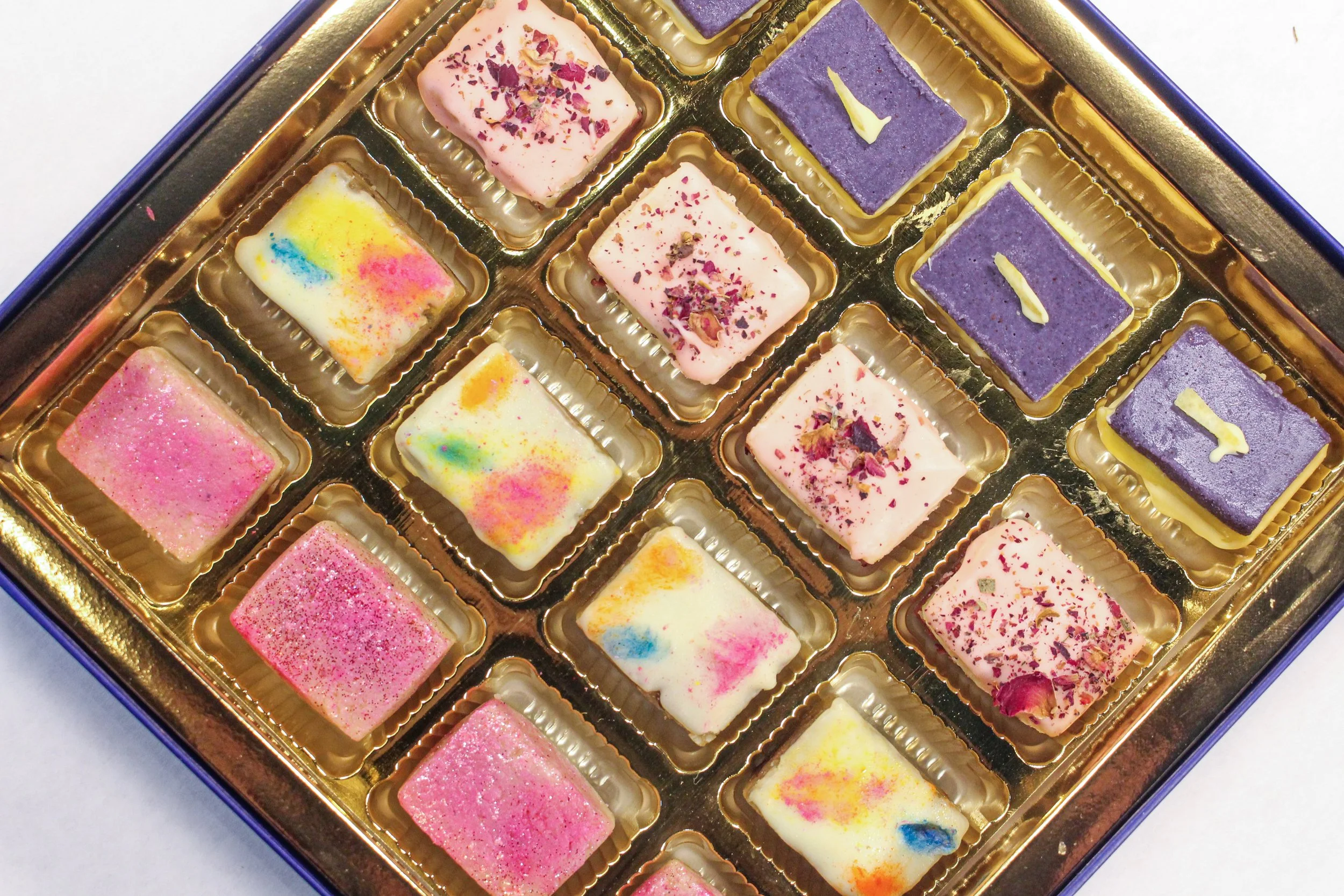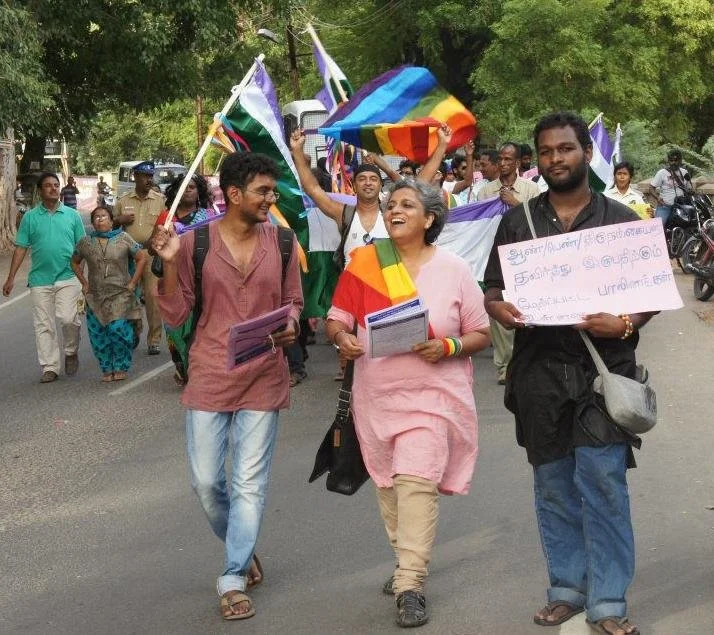The strength of mithai is in its versatility. Able to carry a world of flavors, colors, textures and aromas, these small Indian confections are the perfect vehicles for culinary experimentation. It’s a queer confectioner’s playground.
There are traditional tried and true flavors you can find in any South Asian sweets shop that promise nostalgia and reliable flavor profiles in every bite, from Mumbai to Kolkata, deep in Jackson Heights, Queens to at our own mithai shop in Manhattan’s Financial District.
We love our Besan Ladoos and Pistachio Burfis as much as the next desi, but we yearn to play in the kitchen, create new experiences through food that showcase who we are as queers not just where we come from.
Sometimes we choose the flavor and sometimes the flavor chooses us. Take the newest addition to our 2022 Pride Collection: Blueberry Lemon Curd Burfi, a short king ready for a zesty summer fling, made with dried blueberries and tart lemon curd folded into a sweet Burfi base. It called to us loud and clear.
Mithai purists might call ours inauthentic, but what is culture if not constantly evolving expressions of oneself that’s harkening back to their origins while creatively innovating into the future — and hopefully having some fun along the way.
NO BURFI BINARIES
Our new mithai is queer in its own right, not just because it is handmade by well-paid queer people. Blueberry Lemon Curd Burfi shares 3 out of the 4 colors of the nonbinary flag: yellow, white, purple and black, which together represent gender fluidity outside of the male/female binary.
Gender fluidity is an expression of being alive, of vibrance, change and movement — something that ancient South Asian culture made space for prior to British colonization, which imposed its rigid Western cishetero gender ideologies onto colonial subjects, instituting laws that banned centuries-old traditions that honored gender and sexual diversity in India.
Trans and gender fluid people were certainly treated differently than cis people prior to colonization (and there was certainly pre-existing gender oppression of all women and girls), but they were not violently erased in the way they are being threatened today. South Asian culture recognized the gender expansiveness of trans, nonbinary and intersex people, including them in folklore, history and acknowledging their religious roles in society that exist today.
Anjali Gopalan and Gopi Shankar Madurai inaugurating Asia's first Genderqueer Pride Parade at Madurai with a rainbow and genderqueer flag.
PRIDE ISN’T FOR SALE
For us, Pride and queerness is so much more than rainbows, pronouns and a march co-opted by multinational corporations, banks and cops. Pride is about fighting back against state oppression while celebrating queerness in all of its many shades and flavors. It’s about creating spaces where people can be free from harm, harassment and discrimination, where they can feel safe to come alive into their fullness.
As a queer South Asian owned business in New York City, we understand the tension of showcasing our culture and identities while existing under capitalism, selling products that are on the higher end because we want to pay our workers well, buy high quality products and keep the lights glowing in our storefront.
Can a burfi solve structural oppression of gender nonconformity? Certainly not, but it’s a small way we use food to celebrate who we are, and to point to more meaningful ways of pushing the boundaries that have been set for us, whether it’s challenging the ingredients of mithai or expanding what a person’s gender expression can be.
We want to grow and build not just as a company but as a community where people’s lives matter more than profit and where everyone can experience abundant queer joy. Happy Pride!




